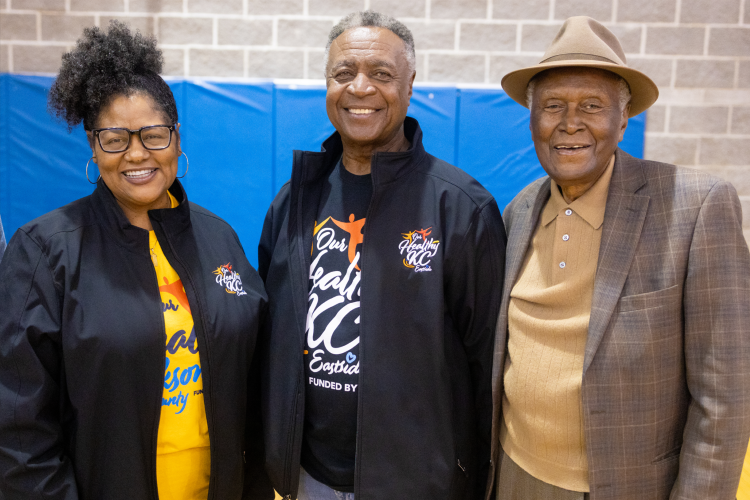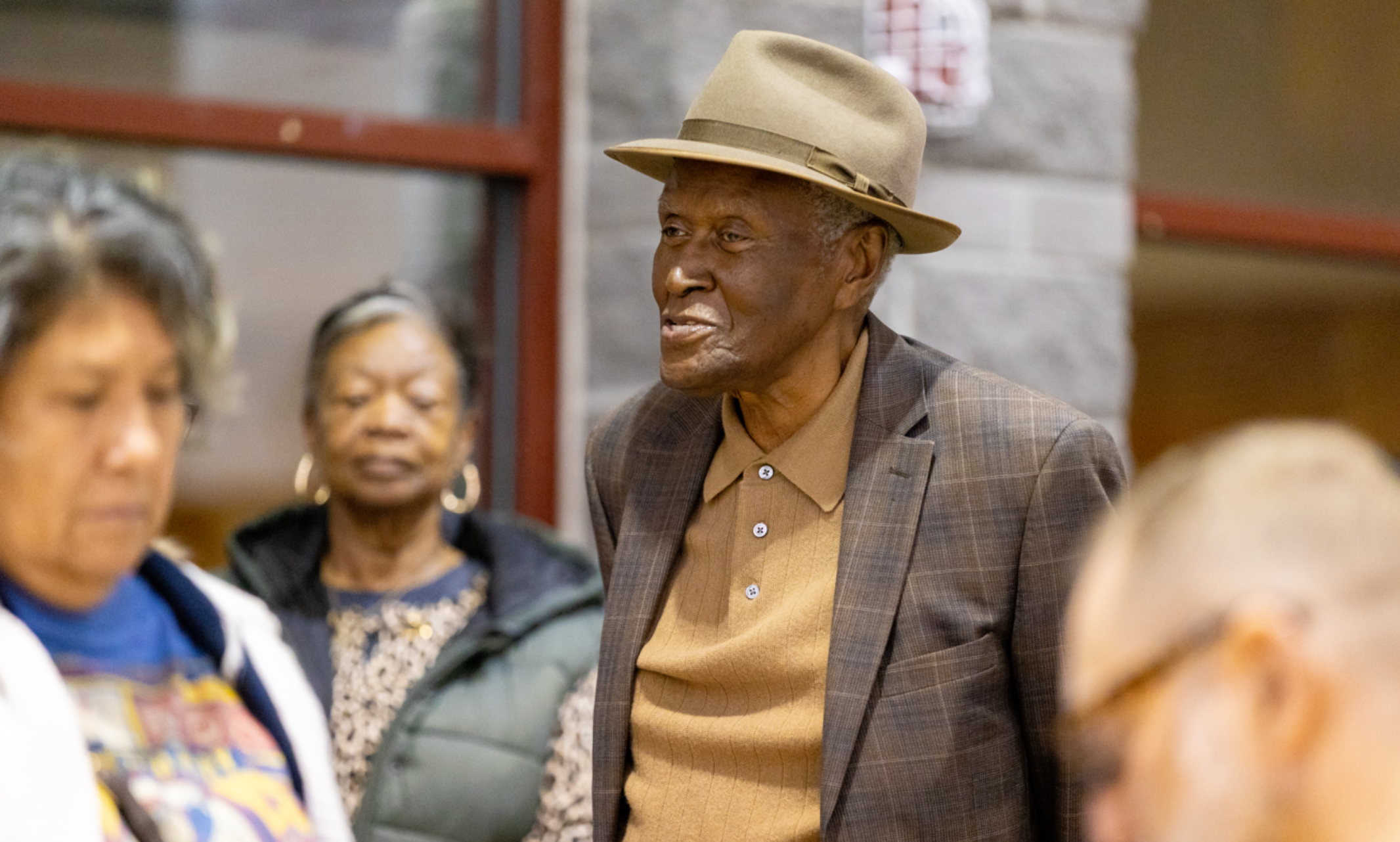Alvin Brooks (B.A. ’59, M.A. ’73) is a name many in the Kansas City community know. He has served as a police officer, councilman and has participated in many acts of public service, urban progression and civil rights. Brooks also had a scholarship named after him for more than a decade and received an honorary doctorate from UMKC in 2012. He has continuously made donations and gifts to UMKC in support of student life, student programs, services and scholarships for 14 years. He is also involved long term with the university’s Institute for Urban Education as an advisory member to this day.
I heard there is a movie coming out about you based off your memoir, and it is directed by Academy Award-winning director, Kevin Wilmott. How did that come about?
Yes! The movie is coming out on Juneteenth, and it is based off my memoir, Binding Us Together. Kevin read it and reached out, saying that he was interested in turning it into a documentary. I wasn’t going to say no to that! I’m excited. Kevin is a great guy and a lot of the scenes from the book will be discussed and shown.
How did you feel when you were named Alumnus of the Year in 2009 and then received an honorary doctorate in 2012?
Oh, I felt great! I didn't expect it, but I was confident about it. It made me think that maybe some of the things that I have done mattered. I am representing UMKC and got to see it grow throughout the years. I was genuinely surprised with an honorary doctorate because I didn’t really do anything to earn one! I’m just happy UMKC valued what I did enough to give me one.
How did you feel when you found out there was a scholarship named after you?
Again, I was extremely honored, knowing that there were people who wanted to give back using my name. Though I am still trying to figure out who were the ones that started it! I think I have a good idea who did it, I will let you know.

One of your scholarship preferences is for first-gen students, why do you think that is important?
I’m extremely pleased that being a first-generation student is a requirement. I think it's very significant and needed. The students who have resources to begin with are going to make it anyway, as opposed to those who struggle, who are the first one in their class or family to go to college or even the first one to finish high school. I’ve spoken about this many times. It is an incentive for those students. It will encourage them to push forward in their studies and create something for themselves. That is why it is important.
Why is giving back so valuable and important to you, and how does that tie with being a first-generation student?
I was completely on my own when I was an undergraduate. I had no help, and it was very difficult. I think meeting people that came from such different walks of life really opened my eyes. That is why giving back is valuable to me. I want to help students not have as hard of a time as I did. I also hope funded programs at UMKC attract different students and help first-time students meet a variety of people.
I know you are a humble man, Mr. Brooks, but are you aware of the impact you make toward our community?
No. Well, let me say this. I hope that I have made some impact. Especially in the areas of race relations and interpersonal relations. I'm a believer. Regardless of what your race might be. I think we should all be free and treated kindly. Not just in America, but all six billion of us. That is what I pursue and believe in, and I try to pass that down to my family and those around me. When I get the opportunities to do things, it makes me feel good. To know that people think I can do that. I’m not Moses or Dr. Martin Luther King Jr., but I am an honest man with integrity. So all I can say is that I hope that I have done well representing UMKC, and I am proud to have done what I did. I hope that when people talk about what I’ve done, they can relate to my humble beginnings. I struggled, but accomplished the things that are most important.
What role and impact do you think UMKC is making?
UMKC has become more prominent since my time being here, and I think the university has realized its role of an urban university. UMKC has become more aware of the community around it and has developed over time. There were only a handful of Black students when I was here in 1956. Now, it’s almost like the United Nations in terms of student population. There are still some issues, but I think there has been a consciousness on the part of the university and its higher administrative members, which will be passed on to the students in the classroom. That’s what UMKC is all about.

